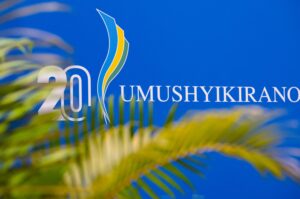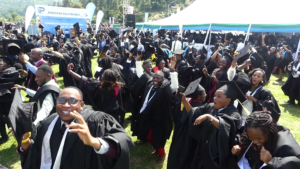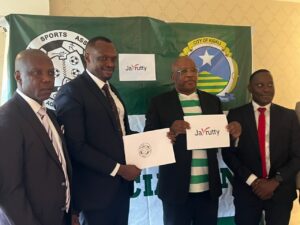“A 10% increase in the share of students reaching basic literacy translates to a 0.3 percentage point higher annual growth rate”, Eric A. Hanushek and Ludger Woessmann, in their working paper, Economics of Education, Economic Fluctuations and Growth, Labor Studies, Public Economics, 2009. This implies that Rwanda’s economic growth and development requires a literate population. But, how are Rwandan women participating to achieve this noble cause?
It seems there is no limit to what women can achieve if properly empowered. For literacy promotion, no one disputes that highly educated women have been active participants in literacy promotion as public servants and in the private sector, thus contributing to the country’s growth.
It is important to recognize that this contribution is not exclusively limited to educated and career women.
“We have worked with the local communities to select community literacy volunteers, a half of whom are women to promote literacy in their communities. These women have been very successful in getting large numbers of children to read”, said Alex Alubisia, the Chief of Party of USAID Mureke Dusome project implemented by Save the Children.
The majority of these community literacy volunteers are not highly educated, and are selected by members of the community. They play a significant role in advancing literacy in the community, and thus, contribute to economic growth. They do sacrifice their time, without any expectation of compensation, with their minds focused on the ultimate prize, that of instilling a culture of reading in Rwandan children. They are women, 2502 of them, facilitating reading clubs established by USAID Mureke Dusome project across the country.
And there is no doubt about their dedication. While emphasizing the dedication and commitment of these women and how they promote literacy in the community, Murumunawe Clemantine, a community literacy volunteer facilitating a reading club at G.S Akanzu, in Nzige Sector, Rwamagana District says, “Mureke Dusome project is expected to end in 2021, but for us, we will keep helping children to read. That’s why we started implementing the idea of producing storybooks using available resources.”

These selfless women spend at least 4 hours of their weekly schedule inculcating a passion for reading in Rwandan children, teaching letters and consonants, facilitating their independent reading, and enhancing their public speaking skills through read aloud sessions.
And when it comes to making reading materials available, women’s input is immeasurable.
Female illustrators, authors, and publishers have received training through USAID Mureke Dusome, including a workshop for making baby books and books for emergent readers, and Rwanda is now publishing more children’s books than ever before.
“The empowerment was so important because it drove up our self-confidence to express our ideas to the entire society through authoring, as well as contributing to the well-being of our families through what we earn from publishing, while contributing to the country’s development,”says Delice Umuhire, the CEO of We for Kids Publishers, a local children’s books publisher.
Positive Impact
With female leadership, USAID Mureke Dusome reading clubs have instilled a love of reading among children. Before, children did not know the value of books. They would damage books.
But now, those attending reading clubs know how to take care of books. Reading clubs havemade children focused.
The community testifies that there would be more children wandering the streets or elsewhere in the community if it were not for these community based reading activities. Other reports suggest a drop in the number of school drop-outs and an increase in children returning to school because the reading club activities encouraged them to learn to read.
Advocacy
Previously, the publishing industry was dominated by men. Now, women have made strides in the areas of sales, authorship, and publishing. Save the Children through USAID Mureke Dusome has mentored them, and as a result, authors and woman-led publishing houses now produce stories that depict women and girls as protagonists or heroes.
Even at School General Assembly Committees, there used to be significant imbalances, but action was taken to ensure that today more women participate in the broader School General Assemblies and are elected as parent representatives.
With Rwanda leading in women’s participation at national level, especially in parliament and government institutions, USAID Mureke Dusome has ensured that for sustainability, the social inclusion and gender dimensions of all literacy promotion efforts are paramount. Save the
Children through USAID Mureke Dusome advocates for having women in leadership positions in all project activities and encourages women in communities to take responsibility for community reading celebration.





